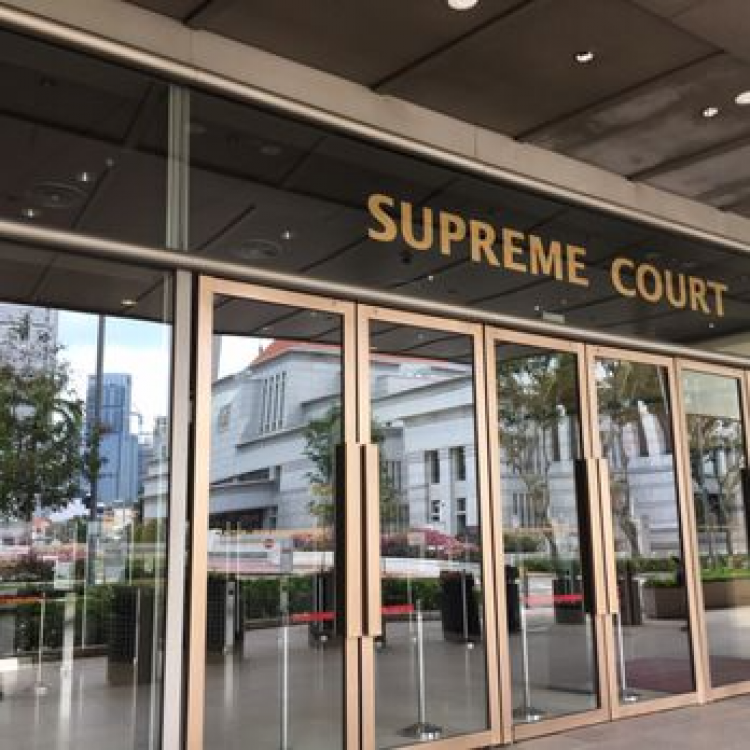( Win in High Court) When Is Shareholder Oppression Remedied? – Relevance of a Buy-out Offer
Published on 5th May, 2025 by Mark Lee

When is Shareholder Oppression Remedied? – Relevance of a Buy-Out Offer
Our “boardroomᵂᴹᴴ⁺” team acted for a founding minority shareholder.
In response to a minority oppression suit filed in the High Court by our client, the opposing majority bloc (through their solicitors) had applied to strike out the entirety if our client’s minority oppression suit alleging that that it was an abuse of process given that an allegedly reasonable buy-out offer had already been made (but rejected) to purchase our client’s shareholding in the company.
The opposing majority bloc further contended that the Honourable Court was entitled to summarily dismiss (without trial) our client’s minority oppression suit on a separate and independent jurisdictional basis; pursuant to the “Ideals” of the Rules of Court 2021.
The matter was heard before the Honourable Judicial Commissioner Mohamed Faizal where our Mr Mark Lee succeeded in resisting the opposing majority bloc’s application (which was dismissed in its entirety).
Jurisdictional Basis – Striking Out (specific to a buy-out offer)
At the outset, the Honourable Court agreed with our rationalisation that the Ideals of the Rules of Court 2021 do not provide a separate jurisdictional basis for a party to sneak in an application for a striking out order.
Ultimately, the Honourable Court noted Leong Quee Ching Karen v Lim Soon Huat [2022] SGHC 309 where similar contentions were made but eventually rejected by the Honorable Judicial Commissioner Goh Yihan (as he then was) in the following terms; “Indeed, it cannot be that a court can override a claimant’s substantive claim for the sole purpose of case management. The substantive aspect of justice cannot be made to yield to procedural efficiency.”
The Honourable Judicial Commissioner Mohamed Faizal agreed that the applicable test in the specific circumstances remained that as set out in Kroll, Daniel v Cyberdyne Tech Exchange Pte Ltd and others [2022] SGHC 231 and interpreted in Leong Quee Ching Karen v Lim Soon Huat [2022] SGHC 309. This is known as the “Kroll Framework”.
The “Kroll Framework”
Order 9 rule 16(1) of the Rules of Court 2021 provides three (3) grounds upon which one may bring a striking out application; namely, (a) no reasonable cause of action, (b) abuse of process, or (c) it is in the interests of justice to do so. In the context of the Kroll Framework, it is the abuse of process ground that applies.
As explained in Leong Quee Ching Karen v Lim Soon Huat [2022] SGHC 309, “… if a claimant in a minority oppressive suit rejects a reasonable offer to buy her out that addresses all of her concerns, that may amount to an abuse of process because the claimant is, in effect, wasting the court’s time by going through a full trial to arrive at the same outcome as if she were to accept the buy-out offer at the outset.”
More specifically, the Kroll Framework (as reformulated in Leong Quee Ching Karen v Lim Soon Huat [2022] SGHC 309) clarified the application of the framework as a two-stage enquiry.
“(a) Stage 1: Is the offer presented a “reasonable offer”, taking into account [Lord Hoffmann’s] guidelines in O’Neill v Phillips? This is a logical starting point – the offer must have been a reasonable one such that the plaintiff could be expected to accept it.
(b) Stage 2: If the offer is a reasonable one, was the plaintiff justified in rejecting that offer and choosing to seek relief by bringing a claim for minority oppression? Here, one key consideration is whether the offer encompasses all the reliefs sought in the plaintiff’s claim. To determine this, close attention must be paid to the reliefs sought and the onus is on the defendant to show that it is impossible (and not just improbable or not reasonably expected) for the plaintiff to obtain the reliefs sought at the end of trial (apart from those already part of the buy-out offer). It is only when the defendant can show this, that the situation would be a plain and obvious case for striking out the claim entirely, on the basis that the continued prosecution of his action serves no useful purpose and is an abuse of process (see Chee Siok Chin at [34(c)]). A related consideration at this stage is whether there are any disputed issues which are more appropriately determined by the court. In approaching Stage 2 in the present case, it is also appropriate – for the purposes of determining whether Mr Kroll’s action should be struck out – to assume that the allegations he has pleaded will be established. As the English CA pointed out in North Holdings (at 635e–f), at such an early stage of proceedings, there will not yet have been any findings of fact made by the court vis-à-vis the plaintiff’s allegations of oppressive conduct; and it “is proper to assume that the pleaded allegations will be established”.”
In practical terms, the Kroll Framework plays out as follows:-
1. Is the buy-out offer “reasonable”?
“… First, the offer must be to purchase the shares at a fair value. Second, the value if not agreed, should be determined by a competent expert. Third, the offer should be to have the value determined by the expert as an expert. Fourth, the offer should provide for equality of arms between the parties. Fifth, the question of costs would have to be considered. The offer should take into account the plaintiffs’ costs although this need not always be payable by the defendants as in cases where the defendants have not been given a chance to make an offer before the action was launched.” - O’Neill v Phillips [1999] 1 WLR 1092 (House of Lords)
2. If the buy-out offer is “reasonable”, was the claimant justified in rejecting that offer and choosing to seek relief by bringing a claim for minority oppression?
a. The operative question is whether the buy-out offer has addressed all of the claimant’s concerns that prompted the minority oppression action in the first place.
b. If the buy-out offer does not address all of the claimant’s concerns, the claimant would be justified in rejecting that offer but the defendant can still succeed in a striking out application if the defendant show that it is a plain and obvious case that the claimant’s pursuit of the relevant relief is impossible to obtain.
c. The question is not whether it is “plain and obvious” that a claimant’s claim for minority oppression per se will be impossible. Instead, the question is whether a claimant’s claim for a specific relief pursuant to a claim for minority oppression will be “impossible”.
Application to our Facts
Applying the Kroll Framework to the present facts, the Honourable Judicial Commissioner Mohamed Faizal held that the opposing majority bloc’s striking out application failed at Stage 2.
Given that the opposing majority bloc’s buy-out offer did not address our client’s request for a special audit of the company and also that the issues raised in our client’s minority oppression suit relate to allegations of breach of fiduciary duty and misappropriation of company assets, it was held that there was a need for an authoritative determination of the claim.
==//==
Mr Mark Lee and Ms Sarah Yeo are both from WMH Law Corporation’s “boardroomᵂᴹᴴ⁺” platform which spearheads the firm’s boardroom, shareholder and joint venture practice group.
Mark Lee – https://www.wmhlaw.com.sg/core-team/mark-lee]
Sarah Yeo – https://www.wmhlaw.com.sg/core-team/sarah-yeo
